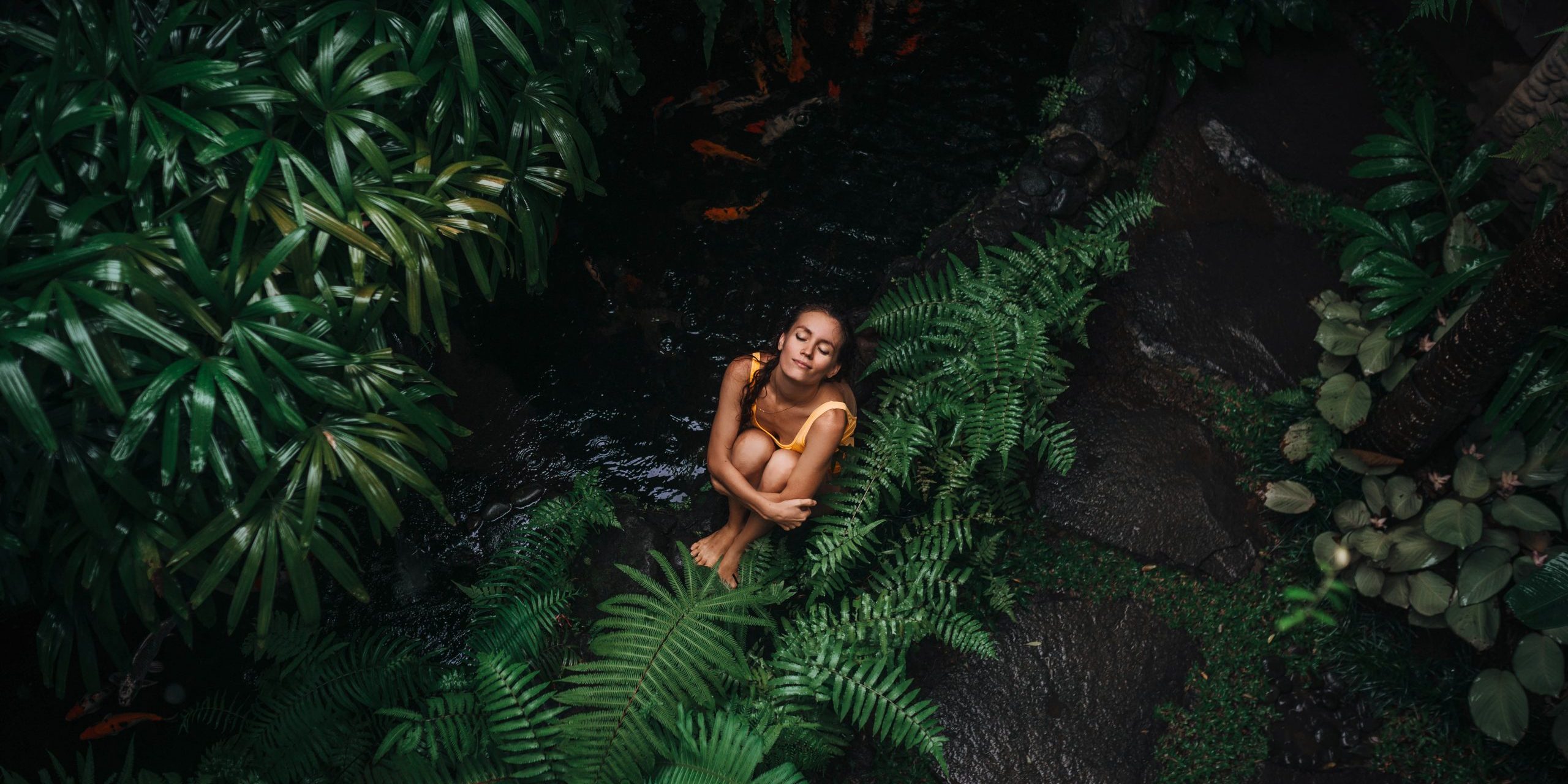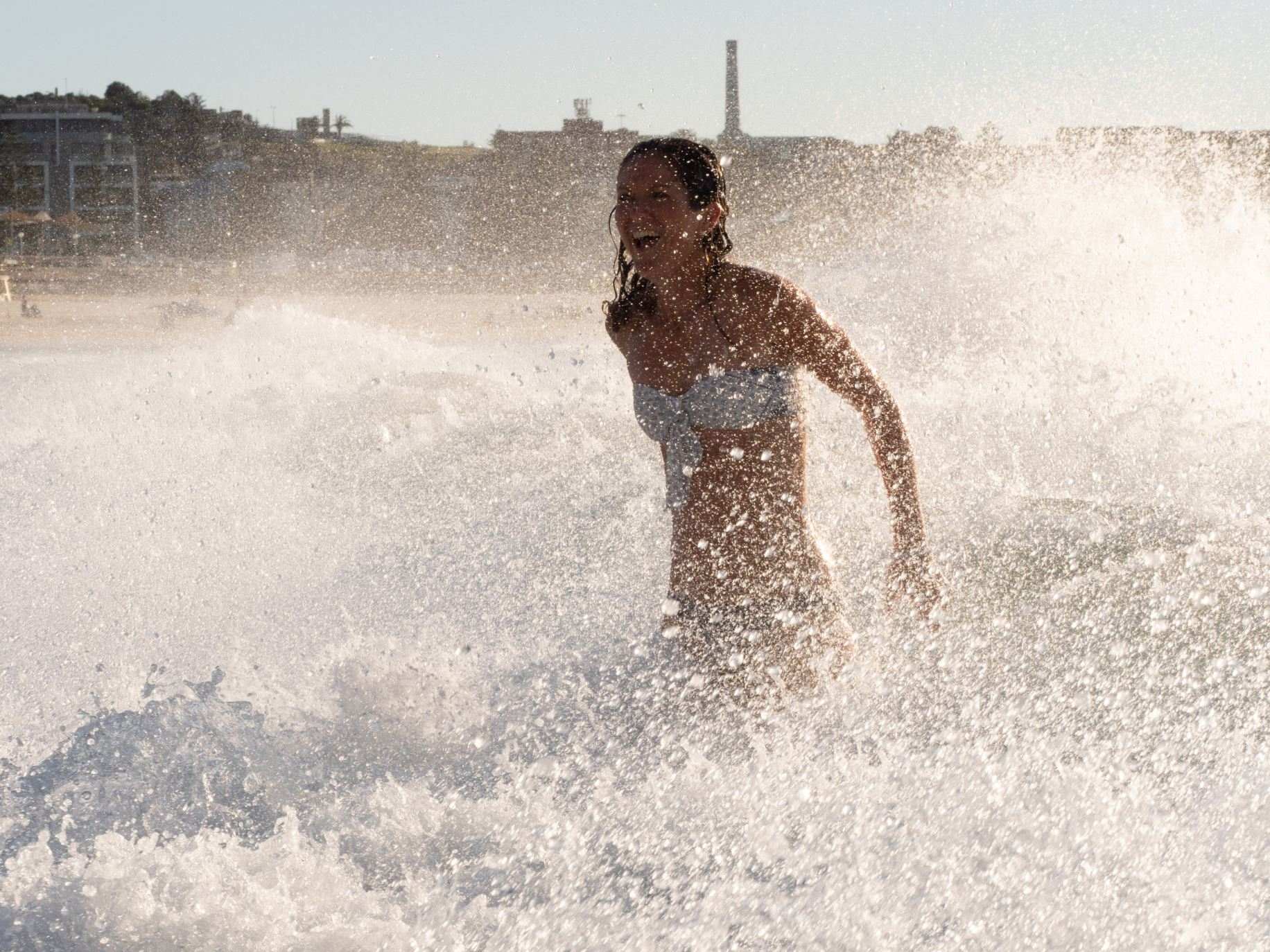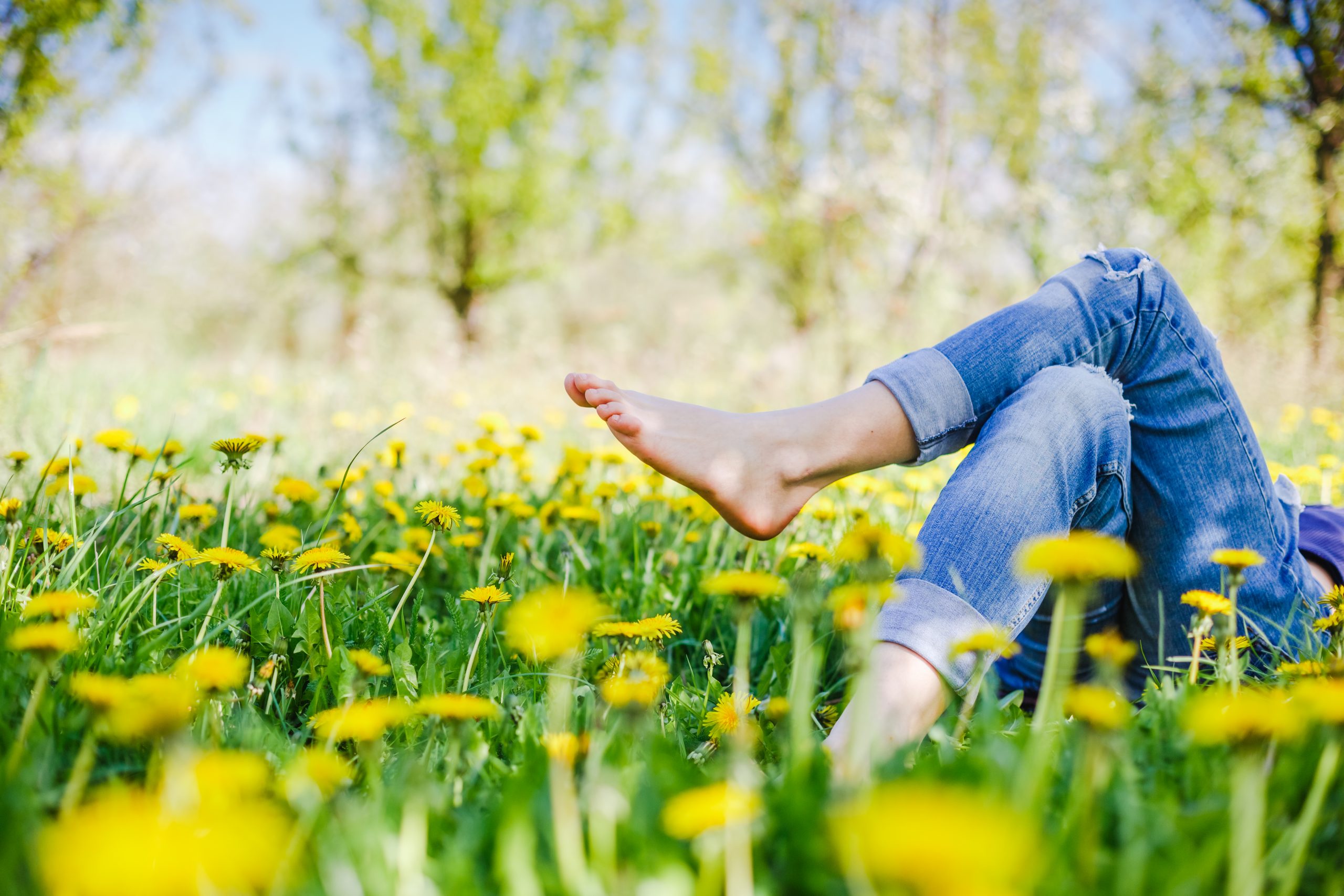We often refer to feeling recharged by a dose of nature.
And guess what, we literally are.
Nature charges us with negative ions, which leaves us restored and reenergised.
Charged by nature
The other week I was feeling totally frazzled. My mind was in a thick fog, and my body was sore and lethargic.
Finally the weekend arrived. And finally it was a calm and sunny one. So I got the chance to do what I instinctively knew my mind and body needed – a big dose of nature.
A gentle early morning stroll, a dip in the ocean and a sit on a rock in the sun. Fresh air, sunshine, salty skin and sandy feet.
The thick fog in my head dissipated and a calm, clear mind was reinstated. The tension and soreness in my muscles eased and was replaced by a relaxed softness. The dark mood became as bright as the morning sun and glistening water.
I felt right again. Relaxed yet energised.
The fact that my mind and body had switched off for the weekend and were enjoying a beautiful morning doing exactly I as pleased certainly helped. But I was also convinced my immersion in nature was playing a big part.
So I got investigating what it was about nature that makes us feel so good. How an hour or so of it can completely transform our body and mind for the better.
Negative ions – nature’s medicine
The positive effects we gain from being in nature ironically isn’t related to positive ions but negative ones.
Don’t worry if it’s been a while since you did science (or you weren’t paying attention). We’re going to keep the chemistry to a minimum.
All we need to understand is that the atmosphere around us contains ions, which are atoms and molecules with positive and negative charges. And that all of this matters to us because our body also has an electrical charge. It’s the way our heart beats, for one thing.
The reason why negative ions are associated with nature is because they’re produced by nature. They’re released by:
- Moving water like beaches, rivers and waterfalls
- Living plants
- UV rays in sunlight
- Lightning strikes
This is why the concentration of negative ions at beaches and in forests can be in the thousands per cubic centimetre. Whereas the level in our homes and offices is practically nothing.
While we can’t see, smell, taste or feel these ions, we inhale them and absorb them through our skin. Once transported from the outside environment into our body, they interact with our internal environment.
So when we spend time in nature, we absorb the rich concentrations of negative ions. And we reap the benefits, which include a more restful state, improved mood, elevated energy, reduced inflammation, improved immune function and better sleep.
No wonder negative ions are known as “air vitamins”.
@morningbondi
Dissociated from nature
The problem is we don’t spend anywhere near as much time in nature as we used to. We’ve constructed a world – both physically and functionally – that’s largely removed from nature.
And this means we’re missing our fix of negative ions.
Most of us now live in cities filled with apartment blocks and high-rise offices. Each of these being filled with synthetic materials, artificial light and recycled air that’s temperature and humidity-controlled.
Despite the countless hours we’re forced to spend in these artificial environments, many of us choose to stay there for our spare time to unwind on our screens. A report from the US Environmental Protection Agency found Americans spend around 90% of their time indoors.
When we do venture outdoors, we do things like wear shoes with synthetic soles, walk on tarred footpaths and sit on park benches. All of this keeps us comfortably separated from the inconveniences and unpleasantries of nature like dirt, dampness and hardness.
But this comfort is only superficial. Because this disconnect is actually causing us far greater discomfort. It robs us of the restorative effects of negative ions.
And that’s only one half of the problem.
Poisoned by positive ions
The other half of the problem is the drastic increase in positive ions in our surrounding environment.
Firstly, it’s important to point out that positive ions are also a part of nature. They’re produced by strong wind, humidity, pollen, dust and mould.
As we can already gather, positive ions are the ugly sister. All of these things leave us feeling a bit yuck. They’re natures little downers. But if left to nature, this supply of positive ions is under control and causes no harm.
The trouble is, modernisation has seen the addition of copious quantities of positive ions into our surrounding environment through things like:
- Pollution
- Toxic chemicals
- Electronic devices
- Air-conditioning
- Fluorescent lighting
- Paint
- Synthetic materials
The high concentration of positive ions present in our modern society has disrupted nature’s delicate balance. And that extends to the delicate balance of our very own nature.
We’re suffering from higher levels of inflammation, allergies, pain and low mood. All symptoms we rightly equate with modern living but usually we blame other things like work stress and busy schedules.
In not realising the ion aspect, we consequently fail to see the associated remedy.
Plug in for a recharge
While we can attempt to limit our exposure to positive ions, it’s a bit of a drop in the ocean. And there’s certainly no avoiding them altogether.
So what we need to do is top ourselves up on the nature side. We need to get outdoors and tuck into a hearty dose of negative ions.
- Soak up some sunshine. I’m not suggesting you fry yourself to a crisp. But a bit of sun-worshipping is a good thing. A moderate dose of fresh air and sunshine will avert harm and promote health.
- Get grounded. Take off your shoes and wander around barefoot. Sit down and drink your coffee or read a book on some grass, sand or a rock. Get your butt into nature, literally.
- Hang out at the beach or near a river. Get stoked like the surfer’s do. If that’s impossible, have a shower (Yep those negative ions produced by the moving water are no different to a waterfall or breaking wave. It’s why we find so much comfort and relaxation in this simple daily task).
- Forest bathing. For decades now, the Japanese head out for a bit of shinrin-yoku or “forest bathing”. So go hug a tree. Or if that’s a bit much just go for a bushwalk or potter in the garden.
We actively seek out these kind of experiences when we venture off on a holiday. And we feel refreshed and revitalised as a result.
But we shouldn’t limit these deliberate recharges to a couple of times a year. We need to incorporate them into our normal life as frequently as we can. Even if it means travelling to a beach or river or forest. Do it. Your efforts will be more than rewarded.








